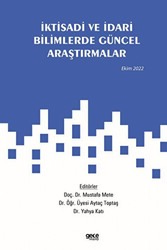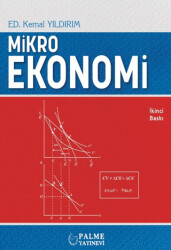Challenges and Turkish Public Financial Management
Tükendi
Stok AlarmıIn order to manage changing societal demands and find answers to economic problems, governments have placed a high priority on reforming their public administrations, particularly during the 1980s. In this period, public reform initiatives were mostly associated with the New Public Management paradigm. In this regard, it has served as the foundation for the reform initiatives in public administration that many developed and developing nations from around the world hope to implement.
While there are examples of successful adoption and implementation of the New Public Management paradigm, particularly in developed nations, there have also been implementation issues in developing nations, where the differences in their political, social, and economic structures have presented challenges for these nations when implementing the new paradigm. Türkiye went through a process comparable to other developing countries in terms of public administration and public financial management systems, despite its tremendous efforts to rebuild the public organization within the framework of the new paradigm in the aforementioned process.
The implementation outcomes of the New Public Management reforms and the causes of the issues encountered—particularly in Turkish Public Financial Management System—were examined in this study, and some recommendations for solutions were presented in this regard.













